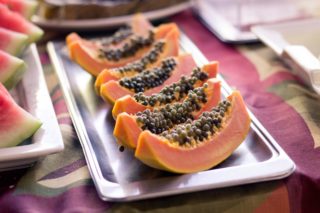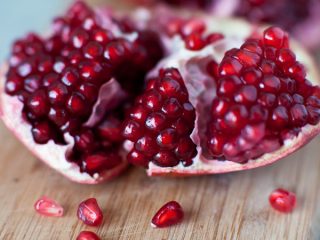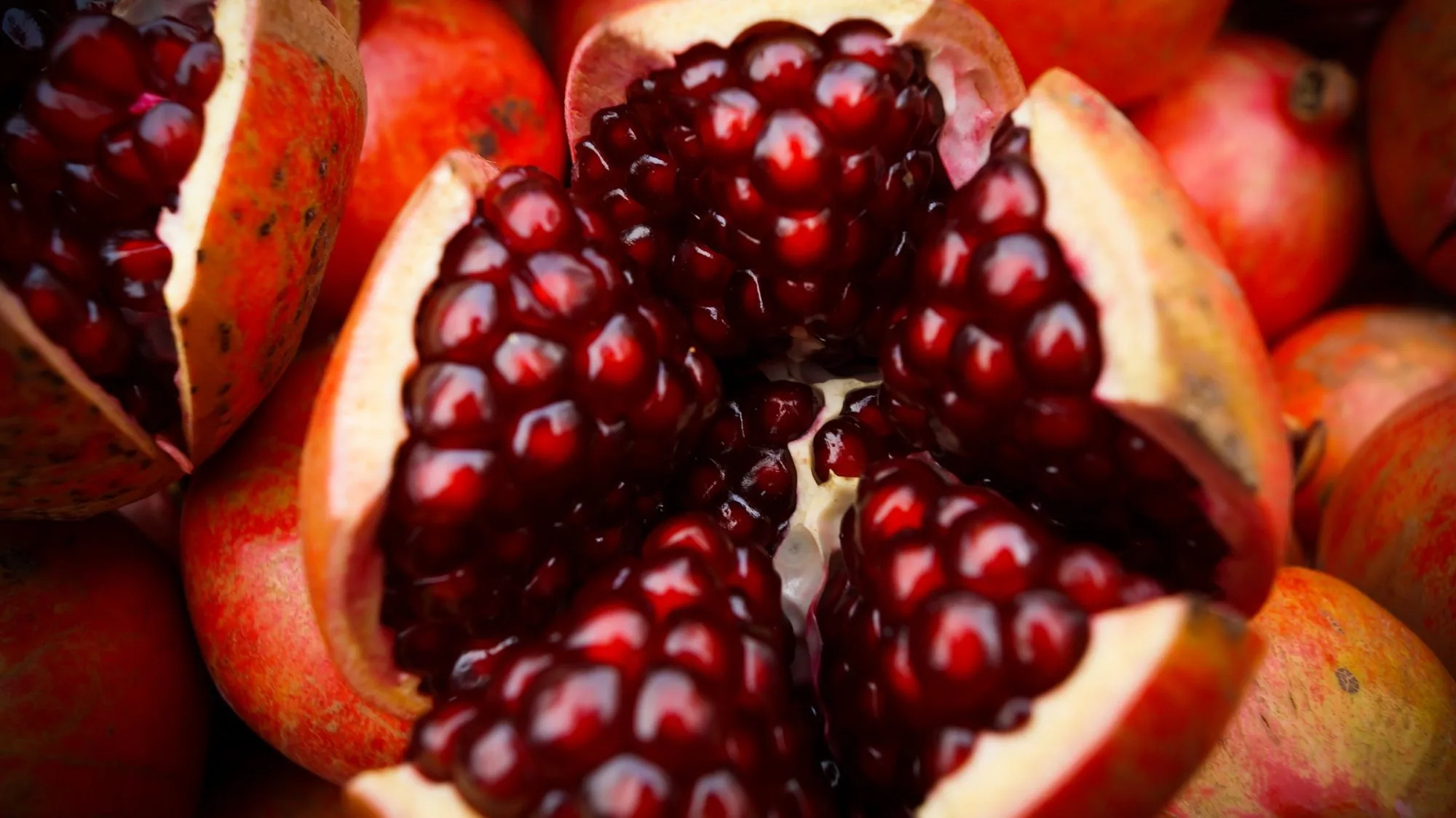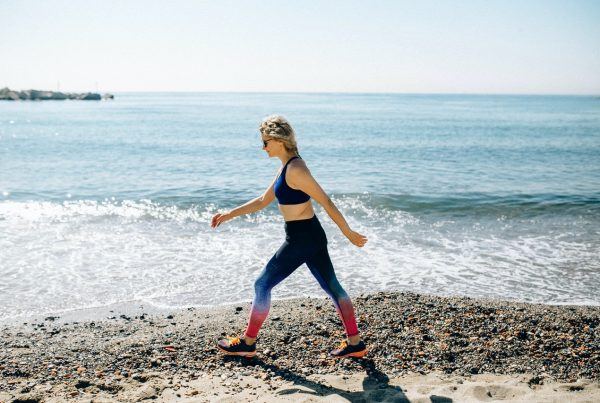Now just because the fountain of youth has yet to be discovered, it doesn’t mean that you don’t have a say in how your skin ages. Yes, aging is an inescapable certainty, but that doesn’t mean that it can’t be done well. In fact, you can still maintain your youthful and supple appearance as you age, and doing so can be quite tasty. That’s because one of the best ways to keep the years off of your face is by eating more fruits.
Fruits are rich in antioxidants and other essential nutrients. These compounds include carotenoids, polyphenols, and flavonoids – all of which help to fight off oxidative stress, thus both preventing and alleviating the signs of aging. Additionally, the nutrients found in a number of fruits can also help to protect your health by strengthening your immune system.
Top 5 anti-aging fruits
Whether you’re looking to create an anti-aging fruit salad, or maybe just enjoy an afternoon snack, here are our favorite top 5 fruits to consume that will help you defy the aging process and maintain a clear, and youthful complexion – all by visiting the farmer’s market instead of the beauty store.
1. Papaya
Whether you’re enjoying it for breakfast, creating a homemade face mask, or just adding it to your smoothie – papaya is an anti-aging superfood.
This fruit is packed with vitamins A, C, and E, as well as B-vitamins and the enzyme papain – which studies suggest may help alleviate scarring (1).

Photo by Amanda Lins on Unsplash
The vitamins not only help fight off free radicals, but vitamin A has been found to help alleviate the appearance of wrinkles. Furthermore, vitamin C helps to stimulate the production of the protein collagen, which helps to reduce the appearance of fine lines and wrinkles.
2. Berries
Strawberries, blueberries, or blackberries – it doesn’t matter which berries you love because all berries are packed with antioxidants that help to protect your body from diseases and promote healthy, flawless skin. That said, dark berries such as blueberries and raspberries tend to have a higher concentration of antioxidants.
Berries are particularly rich in vitamin C, and we know that this is the number one anti-aging skincare ingredient. Why? Because vitamin C not only encourages the production of collagen, helping to reduce the appearance of wrinkles, but it also helps to improve skin elasticity, brighten dull skin, and even out one’s skin tone.
Anthocyanin is an antioxidant found in blueberries that is responsible for their vibrant hue. According to research, anthocyanin is a great anti-aging ingredient as it helps to maintain the levels of collagen, elastin, and hyaluronic acid in the body. Collagen, along with elastin, helps to keep your skin firm and supple whereas hyaluronic acid keeps it fresh and hydrated.
3. Avocados
A common staple of the Mediterranean diet, avocados are a highly versatile fruit rich in monounsaturated fats – which are the healthy fats we should all be eating.
A study published in PLOS One found an association between a high intake of monounsaturated fats and a lower risk of photoaging.
Monounsaturated fats can also be found in extra virgin olive oil, nuts as well as seeds.
In addition to vitamins A, C, E,- which we know are perfect for skin aging – avocados also contain the mother of all antioxidants, glutathione. Research has found that the topical application of glutathione can significantly reduce the appearance of pigmentation and wrinkles, as well as improve skin moisture and smoothness. It’s no wonder those avocado face masks are so effective!
4. Pomegranates
The bright red seeds of pomegranates may contain the secret to flawless aging.
 These seeds not only contain vitamins C, D, E, and K, they also contain a specific compound called punicalagins. According to a study published in Chemico-Biological Interactions, punicalagins can help to prevent the degradation of collagen in the skin, which then allows for healthy levels of collagen to fight fine lines and wrinkles.
These seeds not only contain vitamins C, D, E, and K, they also contain a specific compound called punicalagins. According to a study published in Chemico-Biological Interactions, punicalagins can help to prevent the degradation of collagen in the skin, which then allows for healthy levels of collagen to fight fine lines and wrinkles.
5. Watermelon
Hydration is important, and if you battle with drinking enough glasses of water a day, you can try to eat your hydration instead.
Watermelons are a delicious, hydrating fruit that can help you meet your water intake, and they can also contribute to healthy skin aging. That’s because, in addition to its hydrating properties, watermelon also contains vitamins C and E.
If you’re in the mood for an anti-aging meal, look no further than the fruit bowl in the dining room. Not only will it be a healthier choice, but it will also leave your skin looking young and firm.
Want to know more?
In addition to eating more anti-aging fruits, you should also try engaging in some anti-aging exercises? One, in particular, is Pilates as it provides a great anti-aging workout.
References
Chen, Y. Y., Lu, Y. H., Ma, C. H., Tao, W. W., Zhu, J. J., & Zhang, X. (2017). A novel elastic liposome for skin delivery of papain and its application on hypertrophic scar. Biomedicine & pharmacotherapy = Biomedecine & pharmacotherapie, 87, 82–91. https://doi.org/10.1016/j.biopha.2016.12.076
Jean-Gilles, D., Li, L., Vaidyanathan, V. G., King, R., Cho, B., Worthen, D. R., Chichester, C. O., 3rd, & Seeram, N. P. (2013). Inhibitory effects of polyphenol punicalagin on type-II collagen degradation in vitro and inflammation in vivo. Chemico-biological interactions, 205(2), 90–99. https://doi.org/10.1016/j.cbi.2013.06.018
Latreille, J., Kesse-Guyot, E., Malvy, D., Andreeva, V., Galan, P., Tschachler, E., Hercberg, S., Guinot, C., & Ezzedine, K. (2012). Dietary monounsaturated fatty acids intake and risk of skin photoaging. PloS one, 7(9), e44490. https://doi.org/10.1371/journal.pone.0044490
Nanashima, N., Horie, K., Maeda, H., Tomisawa, T., Kitajima, M., & Nakamura, T. (2018). Blackcurrant Anthocyanins Increase the Levels of Collagen, Elastin, and Hyaluronic Acid in Human Skin Fibroblasts and Ovariectomized Rats. Nutrients, 10(4), 495. https://doi.org/10.3390/nu10040495
Watanabe, F., Hashizume, E., Chan, G. P., & Kamimura, A. (2014). Skin-whitening and skin-condition-improving effects of topical oxidized glutathione: a double-blind and placebo-controlled clinical trial in healthy women. Clinical, cosmetic and investigational dermatology, 7, 267–274. https://doi.org/10.2147/CCID.S68424



![women [longevity live]](https://longevitylive.com/wp-content/uploads/2020/01/photo-of-women-walking-down-the-street-1116984-100x100.jpg)










